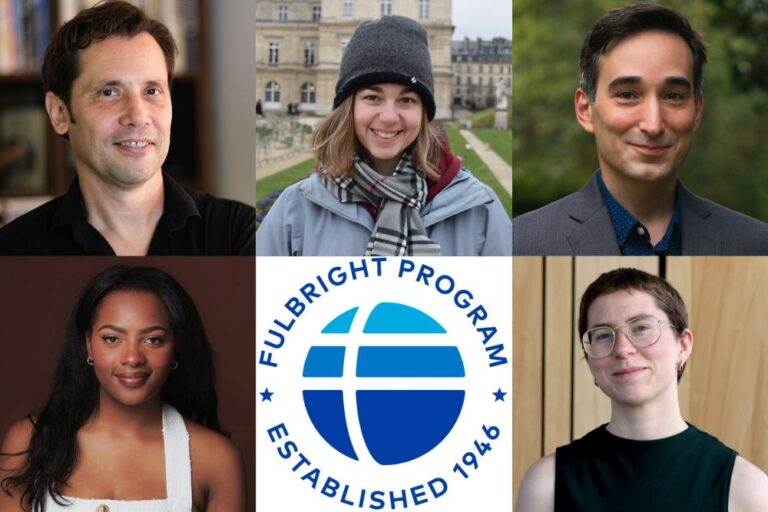In April 2014, College of Arts and Letters alumnus Daehee Lee, M.A. linguistics (1990), Ph.D. linguistics (1997), and MSU master’s in computer science (1996), was honored as the MSU Resource Center for Persons with Disabilities (RCPD) 2014 Outstanding Alumnus. Prior to presenting the award, the College held a morning reception for Daehee in the Wells Hall B-wing addition’s second-floor atrium. Several of his former professors and fellow students, friends and family—as well as CAL Department of Linguistics and Germanic, Slavic, Asian, and African Languages faculty and staff— were on hand to join in the festivities.
I was born in South Korea and, by the time I was 13 years old, I could only dimly see the classroom blackboard, and so visited an ophthalmologist to get glasses. Then, the doctor unexpectedly told me that I had glaucoma and would lose my eyesight before long. The next year, my family and I made a very difficult decision for me to go to a school for the blind in Seoul.
At the age of 18, I lost my eyesight totally, as the doctor had diagnosed. While I was studying at the school, I learned that the opportunities were very limited after graduation. I learned massage and acupuncture for vocation at school, but I could only get a massage license. I could not get an acupuncture license nor was I given any opportunity to take an exam for getting the license.
In addition, most of colleges and universities that I wanted to go to did not give blind students any chance to take the college entrance examination, although I had a very good score on the nationwide college entrance examination which is like the SAT here in the United States. At that time, I was very disappointed and frustrated due to the social environment of discrimination against the blind.
I tried to persuade the colleges that I could study even without any special accommodation, and sometimes fought with them by reporting discrimination to the mass media such as newspaper publishers and TV stations. But this could not open the doors at all.
I knew that I had to go to college for better opportunities; I really wanted to do what I liked and what I could do best. So, although I did not want to do so, I decided to go to Soongsil University, which was one of only a few colleges to give blind students a chance to take an entrance exam. At the college, I studied English language and English literature, and graduated as an honors student. I deeply thank the college for giving me such a great opportunity without any discrimination in social environments as was prevalent at that time.
After graduation, I decided to go to the United States to study more. While I was searching for colleges in the U.S., I realized that MSU was the best for me for several reasons. One was that MSU had a very good reading service for the blind. It was truly important for me to study in new environments. When I studied in Korea, I had to find volunteers myself to have my books and study materials recorded on tapes.
Looking back over that time period, I realize that my life was a series of very tough decisions to make. The decision to go to MSU was one of my best decisions.
The office now known as the Resource Center for Persons with Disabilities, the departments of linguistics and computer science and their professors, all fully supported me while I was studying computer science and linguistics at MSU.
Looking back over that time period, I realize that my life was a series of very tough decisions to make. The decision to go to MSU was one of my best decisions.
For my financial support, I had to work full time, while studying for two master’s and one Ph.D. This was the busiest time of my life, but I remember that my life at MSU was also my happiest time.
Without MSU, I could not have achieved such accomplishments as I have, and develop my current professional career at all. I deeply thank MSU, including the RCPD, the departments of computer science and linguistics, and my professors in those departments! I cannot forget to also thank my wife and my children for their support.
